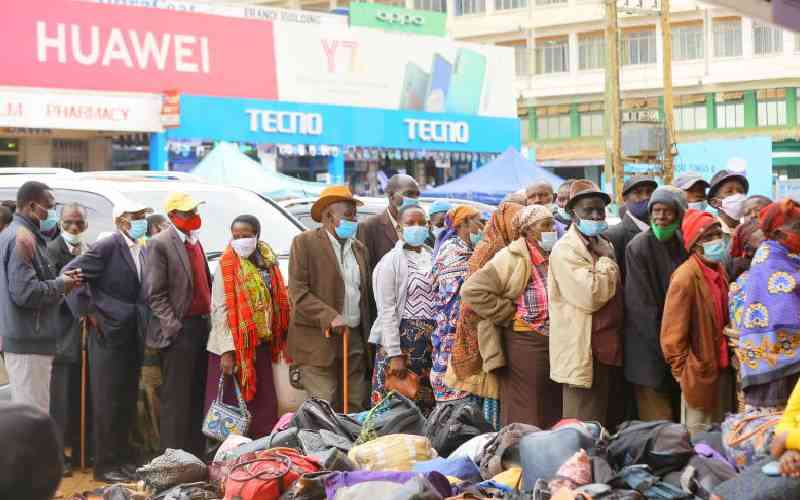×
The Standard e-Paper
Home To Bold Columnists

Senior citizens have pleaded with the State to issue new list of cash transfer programme beneficiaries because the current one is discriminatory.
The elderly also want the government to establish a system that will automatically identify and include in the list those who attain the required age of 65 years.







